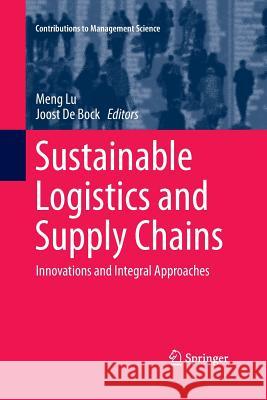Sustainable Logistics and Supply Chains: Innovations and Integral Approaches » książka
topmenu
Sustainable Logistics and Supply Chains: Innovations and Integral Approaches
ISBN-13: 9783319365794 / Angielski / Miękka / 2016 / 185 str.
Kategorie:
Kategorie BISAC:
Wydawca:
Springer
Seria wydawnicza:
Język:
Angielski
ISBN-13:
9783319365794
Rok wydania:
2016
Wydanie:
Softcover Repri
Ilość stron:
185
Waga:
0.28 kg
Wymiary:
23.39 x 15.6 x 1.07
Oprawa:
Miękka
Wolumenów:
01
Dodatkowe informacje:
Wydanie ilustrowane











